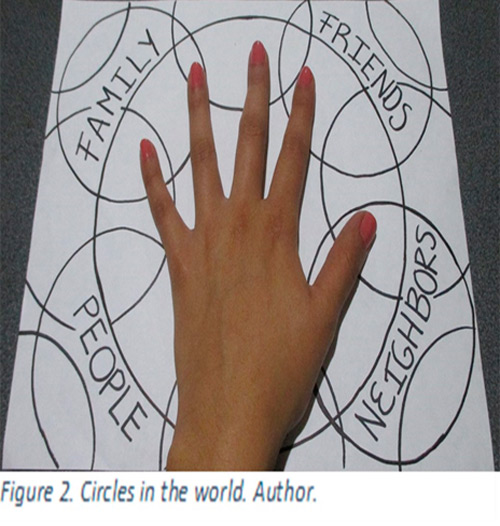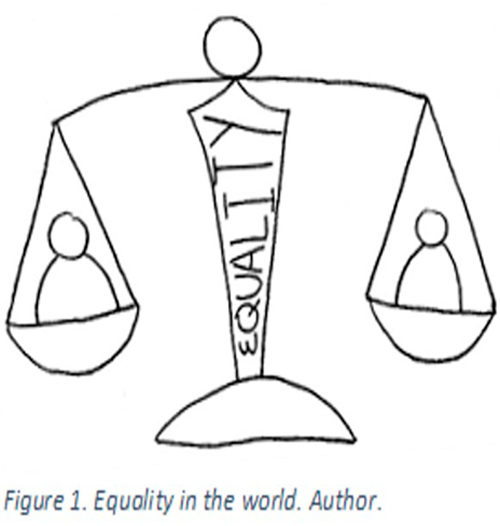This article exposes the impact of the Stoics ideas that help the current society, focused on human rights and citizen competences. Examples of this impact are firsthand experiences described showing the useful of the philosophical fields, also some historical influences of the stoicism that contribute to this theory. The first example of the stoicism according to the human rights and citizen competences is think everyday that each citizen in the world is equal and for that reason deserve respect and the same treatment as others, like figure 1 and when you talk when someone you respect his or her the time and opinion. The equality of humans, as Seneca ideas a “Man is sacred thing to man”. Also, for Epictetus that brings the conscious of Seneca share


that the world is the stage and we are actors in the world (Wildberger & Colish, 2014). Think that you’re not alone in the world, the behavior that you have with someone is equality for everyone and has the same rights that you. The second example about the impact of stoicism in the fundamental pillars of society mentioned is that the way to apply the stoicism could be draw circles around our relationships, like in the figure 2, first with ourselves, continue with the family, the extended family, the neighbors and continue defining circles that at the end are going to be connected for being a part of a society of dialogue and concern (Peterson & Warwick, 2014). According to Russell (2004)
one of main doctrines that Zeno, the founder of stoicism, left was the human freedom. In a context of human freedom and equality be conscious of your environment and the connection with your own circles. In the world are millions of people, you don’t know who you are going to meet tomorrow. But, the behavior that you start everyday with your family with respect and love could be expanded to the other circles of the world.
Finally, the conclusion of the useful help of stoicism is that even today this kind of philosophy show us how or own human rights began and how we can practice behaviors that make people join and convive with other people, within our own circles the way of think the world it’s like a kind of network that is constantly growing.
Angie Estefanie Benavides Peña
List of references
Peterson, A., & Warwick, P. (24 de Octubre de 2014). Global Learning and Education: An introduction.
Obtenido de https://books.google.com.co/books?id=UrobBQAAQBAJ&pg=PA1813&lpg=PA1813&dq=citizen+ competences+stoicism&source=bl&ots=AtBWKKD99f&sig=avuPVPfqEKvZL- G13utEJNOuhZA&hl=es- 419&sa=X&ved=0ahUKEwjcx9m06vzbAhUvtlkKHeSiBsIQ6AEIZTAI#v=onepage&q=stoics&f=false
Russell, B. (2004). History of western philosophy. Obtenido de
https://books.google.com.co/books?id=sIHMdQ4X8GkC&pg=PA242&lpg=PA242&dq=The+main +doctrines+to+which+the+school+remained+constant+throughout+are+concerned+with+cosmi c+determinism+and+human+freedom.+Zeno+believed+there+is+no+such+thing+as+chance+an d+that+th
Wildberger, J., & Colish, M. L. (2014). Seneca Philosophus. Obtenido de
https://books.google.com.co/books?id=q- 0xCgAAQBAJ&pg=PT170&lpg=PT170&dq=Man+is+a+sacred+thing+for+man+seneca&source=bl &ots=iF6WW5H-OT&sig=cTj7M-Koj-wbB2auLooRL16UrTI&hl=es-419&sa=X&ved=0ahUKEwi0- fze__zbAhVnp1kKHU4fCjQQ6AEIRjAJ#v=onepage&q&f=false